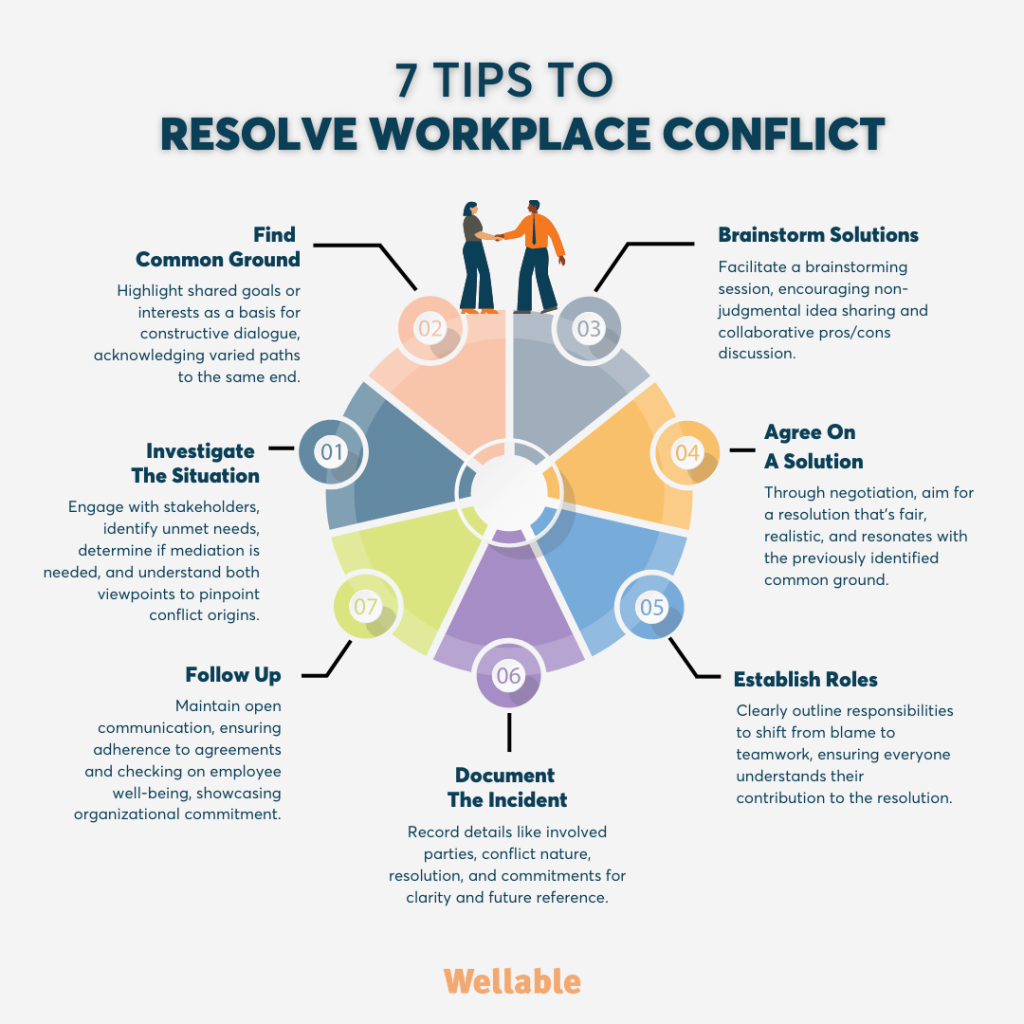As we hustle and bustle through our daily routines, we find ourselves interacting with a myriad of individuals from all walks of life in our workplaces. With such diverse personalities and perspectives, conflicts are bound to arise. However, what sets successful individuals and companies apart is their ability to effectively address and resolve these conflicts. In this blog post, I will delve into the depths of conflict resolution in the workplace, exploring various methods that prove both personal and informative.
Conflict resolution can be an uncomfortable and challenging task, but it is a necessary one for fostering a healthy work environment. When we encounter conflicts, it is easy to let emotions take control, clouding our judgment and hindering our ability to find a solution. However, I have learned through firsthand experiences that maintaining a calm and composed demeanor is key to effectively resolving conflicts.
One approach to conflict resolution is open communication. It is important to create an atmosphere where individuals feel comfortable expressing their concerns and opinions without fear of judgment or reprisal. As someone who has struggled with confrontation in the past, I found that open communication allows for a deeper understanding of others’ perspectives and helps to build stronger relationships in the workplace. By actively listening to others and showing empathy, we can establish a foundation of trust and mutual respect.
Another method that has proven effective in conflict resolution is collaboration. Instead of approaching conflicts as a competition or power struggle, we should strive to find common ground and work towards a mutually beneficial solution. This requires a willingness to compromise and a focus on finding win-win outcomes. Through collaboration, we can tap into the collective intelligence and creativity of the team, leading to innovative solutions and strengthened relationships.
However, not all conflicts can be resolved through open communication and collaboration alone. In some cases, it may be necessary to enlist the help of a mediator or utilize formal methods such as arbitration or negotiation. These methods are particularly useful when conflicts escalate or when personal biases hinder the resolution process. Mediators, whether internal or external to the organization, can provide a neutral perspective and guide the parties involved towards a satisfactory resolution.
One method that I have found particularly helpful in conflict resolution is the use of active listening and effective communication techniques. This involves not only hearing what others are saying but truly understanding their underlying concerns and emotions. As an active listener, I make a conscious effort to suspend judgment and maintain an open mind. By doing so, I can better grasp the root causes of the conflict and work towards finding appropriate solutions.
Moreover, practicing emotional intelligence is crucial when resolving conflicts. Emotions can run high during conflicts, and it is essential to recognize and address these emotions in a constructive manner. By acknowledging and validating the emotions of those involved, we can create a safe space for individuals to express themselves without fear of being dismissed or ignored.
Conflict resolution in the workplace requires a willingness to embrace diversity and differing perspectives. When conflicts arise, it is an opportunity for growth and learning, both for individuals and for the organization as a whole. By embracing conflict as a natural part of workplace dynamics, we can create an environment that encourages open dialogue, fosters innovation, and ultimately enhances productivity.
To further enhance conflict resolution skills, training and development programs can be beneficial. These programs not only provide individuals with the tools and techniques necessary for effective conflict resolution but also create awareness of the importance of fostering a positive work environment. Investing in conflict resolution training shows a commitment to employee well-being and can lead to decreased turnover and increased job satisfaction.
In conclusion, conflict resolution in the workplace is an essential skill that can have a profound impact on organizational success. By employing open communication, collaboration, active listening, effective communication techniques, and emotional intelligence, individuals can navigate conflicts in a way that promotes personal growth and strengthens team dynamics. Embracing conflict as an opportunity for learning and investing in conflict resolution training can pave the way for a more harmonious and productive work environment. So, let us strive to be the catalysts for positive change and embrace conflict resolution in our workplaces.
